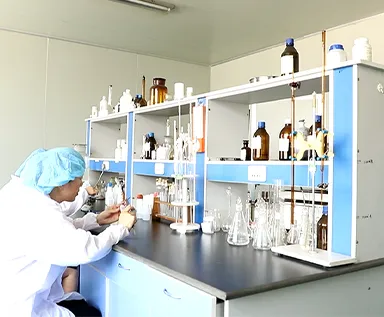stock reagent bottle
The Utility and Importance of Stock Reagent Bottles
In the world of chemistry and laboratory research, precision and organization are key components that ensure successful experiments and accurate results. One often-overlooked item that plays a crucial role in laboratory efficiency is the stock reagent bottle. These bottles are designed specifically to store various chemicals and reagents safely and securely, allowing researchers to access these materials easily while minimizing contamination and degradation.
Stock reagent bottles come in a variety of sizes and materials, depending on the specific requirements of the substances they contain. Commonly made from glass or high-density polyethylene (HDPE), these bottles are resistant to a wide range of chemicals. Glass bottles are particularly favored for organic solvents and corrosive substances due to their inert nature, while HDPE bottles are lightweight, durable, and less prone to breakage, making them ideal for handling hazardous materials.
One of the primary benefits of using stock reagent bottles is their ability to maintain the integrity of the reagents. Many chemicals are sensitive to light, temperature, and air exposure, which can lead to degradation over time. Stock reagent bottles are usually equipped with tight-fitting lids and sometimes include additional protective features, such as darkened glass to block light or vacuum seals to prevent oxidation. By providing an optimal storage environment, these bottles help ensure that reagents remain effective for their intended use.
stock reagent bottle

Moreover, stock reagent bottles aid in organization and efficiency within the laboratory. Each bottle can be labeled clearly with the name of the reagent, concentration, date received, and expiration date, facilitating quick identification and reducing the risk of mishandling. This is especially important in busy labs, where numerous reagents are often in use concurrently. An organized inventory allows scientists to locate the necessary chemicals swiftly, minimizing downtime and promoting a more productive work environment.
Additionally, the use of stock reagent bottles contributes to laboratory safety. Proper storage reduces the risk of spills and exposure to hazardous chemicals, protecting both the laboratory personnel and the environment. Many stock reagent bottles are designed with safety features, such as spill-proof caps and reinforced bodies to withstand accidental drops.
In conclusion, stock reagent bottles are indispensable tools in the realm of chemistry and laboratory research. They provide a safe, organized, and efficient means for storing and accessing a wide range of reagents, ultimately enhancing the overall productivity of scientific endeavors. As research continues to advance and the range of chemicals utilized expands, the significance of high-quality stock reagent bottles will only become more pronounced, underscoring their role in the pursuit of scientific knowledge and innovation.
-
Aesthetic Makeup Spray Bottles | Fine Mist Empty RefillableNewsAug.19,2025
-
White Plastic Veterinary Vaccine Vials | Lab Liquid BottlesNewsAug.18,2025
-
Plastic Medicine Liquid Bottle: Secure Flip Top Drug VialsNewsAug.17,2025
-
Durable 250ml Blue Plastic Vaccine Vial for Lab & Vet UseNewsAug.16,2025
-
Sterile Virus Sample Tubes: Secure & Reliable Specimen CollectionNewsAug.15,2025
-
White 250ml Plastic Vaccine Vial for Lab & Vet MedicineNewsAug.14,2025
























